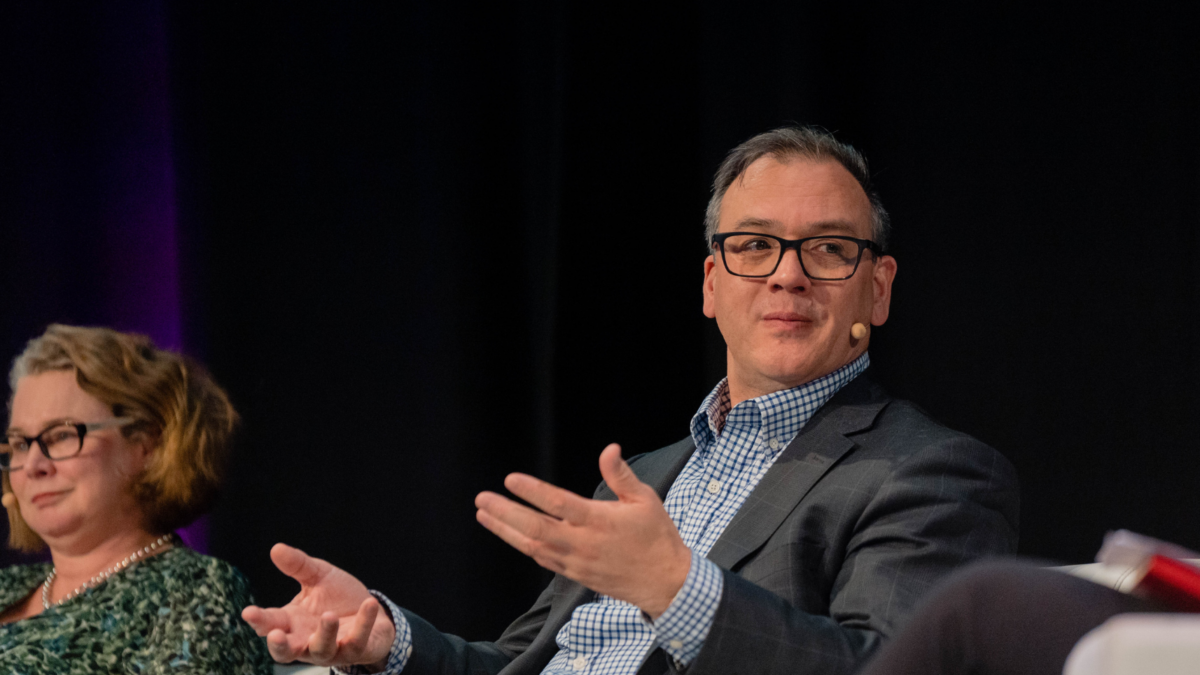‘Understand the tension’: Funds fret greenwashing, engagement
With Mercer Super in court over claims of alleged greenwashing and news that ASIC would receive extra funding to combat the practice, super funds are double-checking whether their glossy marketing materials match what’s in products themselves, according to a panel at Wednesday’s Australian Council of Superannuation Investors (ACSI) conference.
“We went through the website and we went through our product disclosure statements and our annual reports; we also asked our marketing team to provide us with every bit of collateral that they had out in the market,” Liza McDonald, head of responsible investment at Aware Super, told the ACSI conference on Thursday. “We were surprised by some of the collateral that hadn’t gone through a sign-off process, so we’re revisiting that internally”
“There was some language that was changed, particularly for products that have screening in place… We were making sure that it was clear that there were materiality thresholds and what they were. It was more about fine-tuning the language to make it very clear what that product did.”
At the same time, Cbus CIO and acting CEO Kristian Fok said that funds must stay on the front foot when it comes to sustainable investing and engagement despite apprehension about how to navigate an evolving regulatory regime and how their efforts might be received.
“You don’t engage once and it’s done – people don’t appreciate that,” Fok said. “The world’s going to get more complex and we have to keep adapting and it’s our role to help navigate that. I’ve had to go through two House of Reps inquiries, almost got pulled in front of a royal commission, multiple audits from different regulators; that’s just part of the business now.”
“It does worry me that you spend too much time protecting your own self rather than doing things, but I’ve formed the view that as long as we continue to invest in what we do and become more sophisticated than we can also defend against those things. The alternative is that we retreat, but that’s guaranteed to get us in trouble because we’ll be seen as not exercising our responsibilities on behalf of members.”
Meanwhile, Care Super chair Linda Scott said that it was important, particularly in relation to regulators, to “understand the tension” between short-term and long-term outcomes and that there were opportunities for more collaboration between both super funds and the Commonwealth government.
“Just as a board has to get the right settings to achieve good outcomes for management and staff, I think the Commonwealth government identifying the areas where policy settings would be most useful to achieve outcomes and prioritizing their enormous workload in a transparent way – that would be of great use,” Scott said.
“To greenwashing, balancing that short-term regulatory imperative versus our imperative for long-term investment and long-term returns, that’s a real challenge. The more that governments are able to articulate the benefit of that long-term scope and regulate in that way and think about that helps us achieve better outcomes.”
More will also be required of external managers, McDonald said, noting that while Aware already has ESG integration clauses for its more than 100 managers she expects the relationship to evolve as ESG and sustainable investing matures.
“We have some voting rights that we’ve taken off our managers but we want their views,” McDonald said. “So that’s already embedded in a lot of mandates that we already have. Given that we have a stewardship program ourselves I think is getting better at defining our targets and milestones and what we’re trying to achieve we need to set that course first.”
“We have a lot of dialogue with our fund managers on how they’re trying to make investment decisions and whether they’re engaging on the same issues. We want to go in with our fund managers in some cases to show that alignment to companies… It will evolve – us setting the targets and us getting alignment with our fund managers.”











